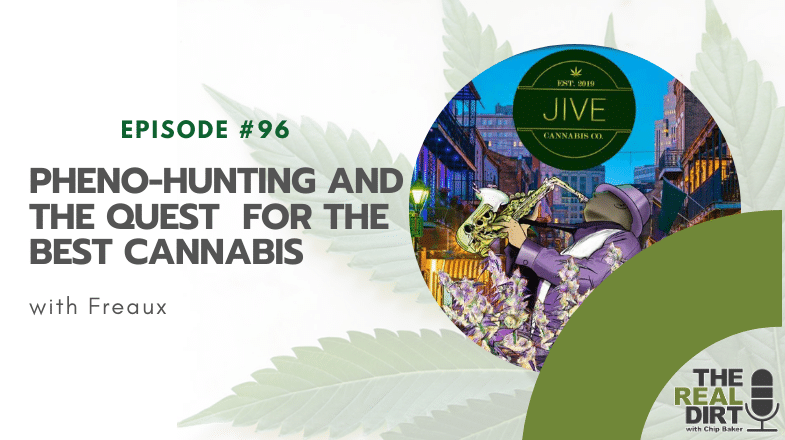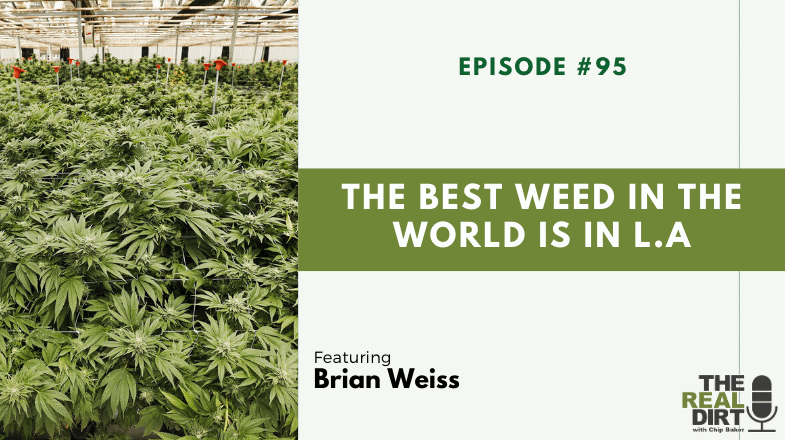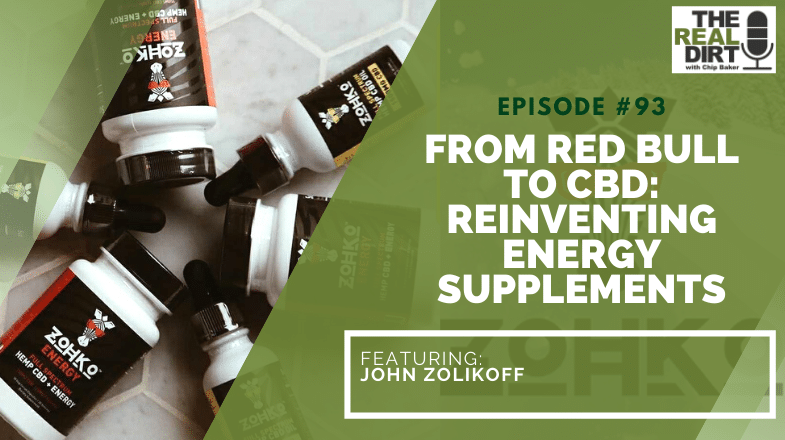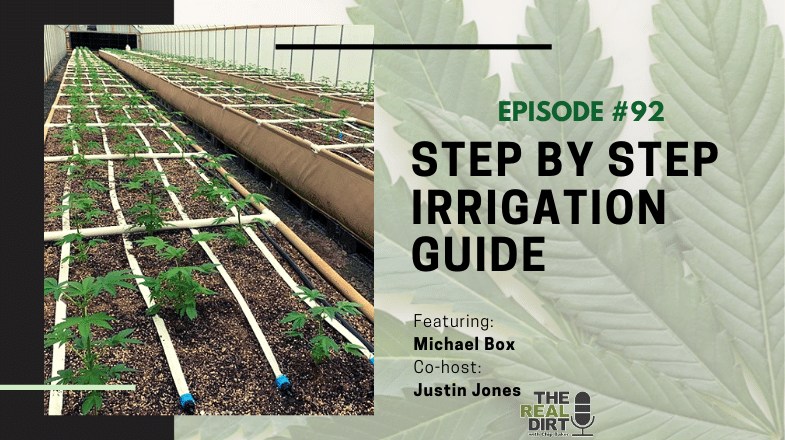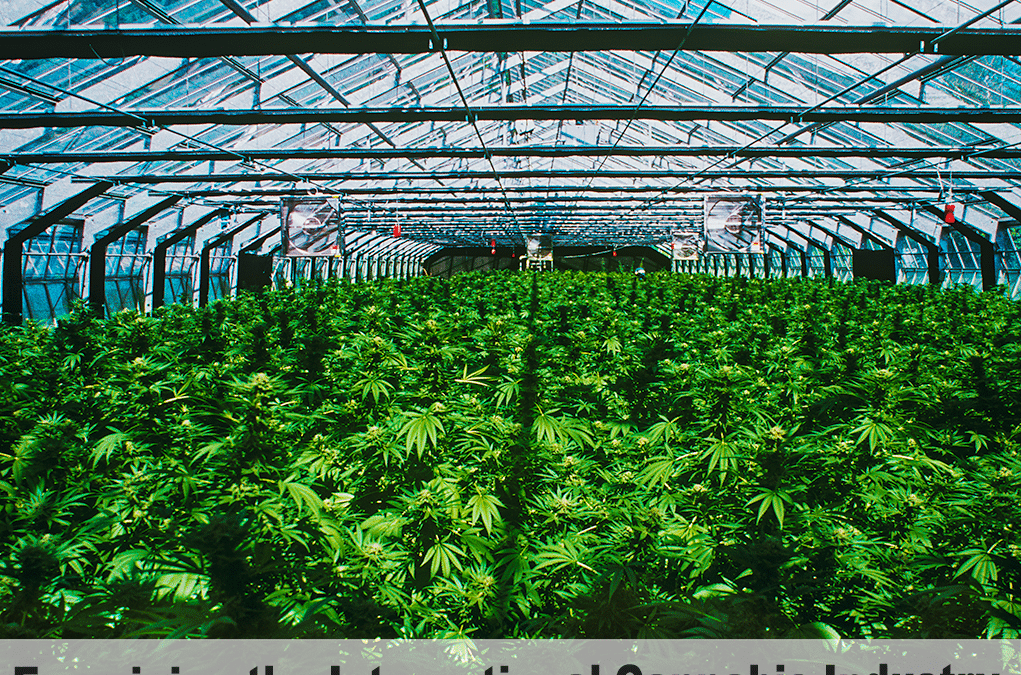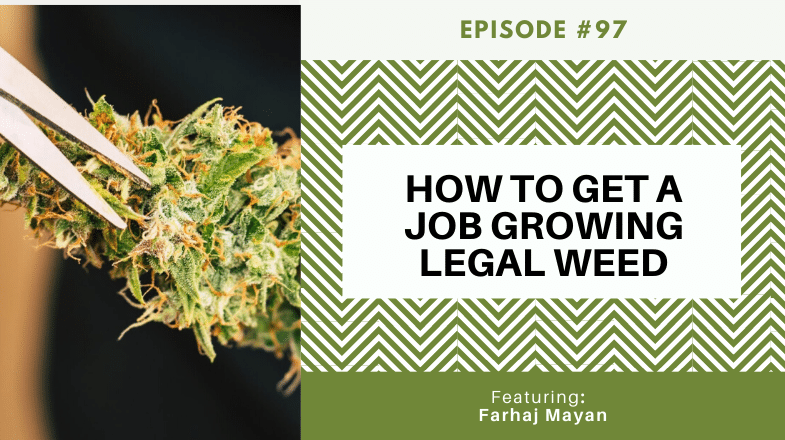
How to Get a Job Growing Legal Weed
Podcast: Play in new window | Embed
Subscribe: Google Podcasts | Spotify | iHeartRadio | Stitcher | Email | TuneIn | RSS

Farhaj Mayan is a UI/UX designer, product owner, and passionate storyteller.
He worked as an early employee at 3 startups (Drones, VR, Experiential Marketing) before deciding to transition into a founder. Previously co-founded Fade, a barber booking platform that we successfully launched to Google Play, iTunes, and grew to new revenue.
His latest venture Kanna, is a platform that connects legal cannabis/hemp businesses with vetted, trained talent.
One of the hardest parts within the cannabis industry is to find qualified workers. Let’s all hear from Farhaj and his advocacy to help reduce the cost and stress related to hiring as well as giving you the best job match for the cannabis market.
Trust is a service that is something that the cannabis industry entirely revolves around. The good people doing good work, helping get good progress. – Farhaj Mayan
Download The Episode Companion For This Episode
Some Topics We Discussed Include
2:09 – Hire Kanna
12:52 – Turnover rate in the cannabis industry
16:58 – Typical problems with recruiting in the weeds
19:28 – Getting a job in the ganja market
27:34 – Future of Kanna
29:16 – Where to find them
30:35 – Employee-employer in the budding business
People Mentioned / Resources
Connect with Kanna
Connect with Chip Baker
Transcript
Chip: Hey, this is Chip from The Real Dirt not today’s dirt. I have my good buddy, Farhaj with Kanna hirekanna.com. And he has developed this great platform where he hooks up workers and employers in the cannabis industry. Finding qualified workers is one of the hardest parts within the cannabis industry. And sometimes you just grow so fast that you can’t easily hire. And one of the things they’ve done is they’ve created a network of employees and employers so if you’re interested in the cannabis industry and want to start at the ground level or if you’re an experienced grower, you can come talk to them hirekanna.com. Really nice guys. Today we talk about everything that you need to be employed in the cannabis industry. Talk about the ups and the downs. We talked about what it’s like to be an employer and the difficulties as employees. So sit back, fire up the largest joints you can and then join us for The Real Dirt.
All right, welcome to another episode of The Real Dirt in today’s dirt. I’ve got my good buddy Farhaj. We’re talking about working in the cannabis industry. Please say hello to all our public people here.
Farhaj: Hey, all super excited about this one.
Hire Kanna
Chip: You know, I met Far here in Oklahoma, a friend of a friend. I mean he operates a business. That’s people management software for the cannabis industry. This is mainly, man like you explain it Far.
Farhaj: Yeah. I mean, the easiest way to say it is you know, a lot of the jobs in the cannabis industry are kind of entry level. What we do is we build a supply side of workers in new markets and then, farmers, dispensary owners can just push a button and hire vetted trained diligent workers on demand. So that’s what we do.

Chip: It’s, I mean, it’s work placement, almost, but yeah, and the–
Farhaj: Like a home advisor for the cannabis industry. You know, we’re like a thumbtack. That’s kind of what we’re at.
Chip: So to one of the things you guys do is you help people find tremors or growers or laborers, right. In Oklahoma City area or all over?
Farhaj: Right now we’re focused on the Oklahoma State, primarily Oklahoma City, Tulsa and South Oklahoma. But hopefully we’ll get to expand a lot beyond that over there.
Chip: How did you get involved with this? What were you previous to this?
Farhaj: So this is like pretty funny story actually. But for two and a half years before this company, I was actually the CEO of a company called Fade. Essentially it was a barber booking platform that helps you find the right barber for your hair type. So people who are traveling all over black brown dudes who get haircuts every single like two weeks. That’s what we’re focused on. So launch to the Dallas we–
Chip: [inaudible] called Fade?
Farhaj: Yeah, like a Fade.
Chip: For all of the white people out there. A fade means what, Farhaj?
Farhaj: It’s a specific type of haircut. So you can get like a medium fade, a high fade, it’s kind of the blend when you’re having a shoe run against your hair on the side of your head.
Chip: Right, right. Just Yeah, fade back.
Farhaj: Exactly. Yeah, but yeah, so we were working on it, we launched it, we grew through early revenue and right about when we were raising our funding for that round the company, you know, our competitor, won the marketplace, you know, one reasonable load of money and square the payments platform launched, and they were like, outspending us 32 x on all of our acquisition channels. So, long story short, I put the numbers into my [inaudible], and it looked a lot more red than I needed it to be.
So we decided to wind down the company and literally four days later. Now our partners Zildjian he gave my CTO phone call was like, Hey, man. Fun fact, I have a cannabis farm in Oklahoma. Another fun fact, I just fired my grandma from being a really bad trimmer. The other thing is I need you all to drive up and up. We get the stuff ready to send over to my dispensaries. So we were like, okay, you know, we packed up into a car we came up here to Oklahoma and while we were trimming, he was like, dude, I’m like a $10 supercuts guy, you know, I don’t need a master barber to pull up to my house like why don’t you just make an app where I can push a button and hire cannabis workers? Oh, that’s interesting. That was 23 weeks ago.
Chip: So have you have you launched this yet?
Farhaj: Yeah, so we’re already live in Oklahoma. Right now we’re deploying around 300 workers and we’re running paid pilots with 14 businesses. So far so good.
Chip: And and the the app is that live?
Farhaj: Yes, we have like a web app right now. But we have the full app going to be live in the summer.
Chip: Oh, excellent. Man. We got in we moved to California in 1997. We got jobs me my wife, girlfriend at the time but now my wife. I got jobs trimming you know we’re in the cannabis industry literally like we went to a medical marijuana meeting right [inaudible] to just become legal we met this guy and he offered us jobs immediately trimming weed and for him it was the best thing ever because he had been growing weed for 30 years but he couldn’t advertise necessarily for tremors.
So he saw me and my wife were barely you know, were clean cut hippies at the time. Right and he hired us and he really those guys really mentored us and showed us the way. And because because trimming is the entry level job in cannabis right? Like everybody even though if you like maybe already be grown a little bit or like have a little stash or you know, whatever like it always like in the industry that’s entry level.
Farhaj: Yeah. Because I mean, there are like machine trimmers, but they just, I mean, you you told me about that specifically, they just don’t do a good job, right.
Chip: Yeah. Well, I mean, you still have to have people to use the machines. Right? They still have, you know, you have to like, you still have to have people, right, no matter what if you’re using machines or not.
Farhaj: We were actually doing some research and talk to some of our farms. So they were saying, you know, like, they spent $5 to $15,000 to get like, even the really big machines and they were like, it wasn’t worth it because it was damaging the microbes. It’s like they doing like blood damage. And they’re like, I’m just, it’s not I want to go back. Right. Yeah,
Chip: Yeah, I mean, there’s a there is definitely a space for automation. And you know, there’s a way to use all of the machines right and wrong. You know, we the green bros are really great product. And, you know, we just see people use them as an extension of the scissors and yeah, it might not do as good a job as hair trimmed man with a great bros and unlike some good operators, because that’s the thing is like you have a good operator. Right, man it just helps out like yeah it damages the weed a bit but like you know–
Farhaj: I think it’s [inaudible] a really large farms–
Chip: Yeah, if you have a really large farm, you’re doing extractions if you know if you’re trying to sell a cheaper product like those are all ways you know to use machines but you still got to have people to run it. Absolutely right.
Farhaj: Yeah, we got the visit like Flower One in Vegas. They’ve got huge like farm processing facility. It’s like, right, it’s almost like their compliance is like almost like FDA level almost like they’re preparing for it. But one thing that I saw was like they had all of like the people at hand trim, but they use bucking machines, and they pretty much had like assembly lines to automate like the inefficient parts of the process, which is like box tracking and like destemming the thing and removing the failed leaves and stuff. That’s where they used a lot of the machinery and like for the final touches, they still had a little bit of like human interaction even though it was a massive farm.
Chip: Right? Yeah.
Farhaj: So 97′ 96′ was when it was legalized in California, right?
Chip: 96′ was when it was legalized in California. We moved there immediately. We mean [inaudible] already involved with cannabis and cannabis politics when we were in. We met each other University of Georgia and we were involved in this thing called the Cannabis Action Network. And we went to a protest down in action down in in Florida Jacksonville. Oh, this guy Murli, Murli was a doobie tosser and he’d gotten arrested for like, you know, thousands of joints. It was an annual thing he did. Great guy andwe met Jack Herer there and we all stayed at this one little compound that was literally called Board Ganja and Jack smoked me out, man like no ever had. The weed was so good. So good you know I was at the time 23 and he smoked us out and he you know I’m just like so high and he’s you know Jack like tell people these stories and he’d get you into it he played in and we need good people like you to come to California because now we’ve got medical marijuana legalized and now we need to make it you know really happen. And that’s why we moved to California, man. Jack Herer–
Farhaj: Was that a road trip or a flight?
Chip: Oh, we packed up the car with a bucket with a box of records. My cat and an ounce a weed.
Farhaj: Oh my God. That is awesome.
Chip: It is Hey man, this is a perfect time to take a break and roll some weed up. Then we get back to the conversation. Okay.
Farhaj: Sounds good.
Chip: Man. What would you roll up?
Farhaj: I usually like to roll up something that has a lot more CBD than THC. So Zildjian actually got me this like 16 to 1 a CBD to THC flower and that’s been great. Everybody has their own type, right?
Chip: I like the blend O the CBD to ganja for sure for about one third CBD, two thirds ganja in it. I like it man. Most of the CBD stuff has grown with just water outside and smoke super smooth you know really good smoking product. And it’s different from ganja but I just can see the– I can see it all.
Farhaj: Yeah, I just really enjoy like the more like relaxed body high versus like the you know, like for me, it’s like my brain is reading like 16 different thoughts at the same time.
Chip: We’re on the same way, man.
Farhaj: Yeah, that’s awesome.
Chip: So one of the problems with employees in the cannabis industry in the past it’s been so like dubious like I was saying about our you know, the guy Nelson who hired us. He wanted to hire people, but you know, he didn’t know anybody.
Farhaj: Yeah
Turnover Rate in the Cannabis Industry
Chip: But you guys are doing something really interesting with the way you guys put it together. So you do background checks and then you train People a little bit. So when they go into an you know, an cannabis operation, they at least have some sort of success, right or some– What do you think the turnover rate is with people coming into the ganja industry, hemp industry?
Farhaj: It is wild. So like retail and hospitality, the turnover is around like 20 to 30%. Right and each like bad higher cost like $3500. In cannabis, the turnovers like six out of 10 employees turnover in the first two months. And a bad hire can cost anywhere from $7500 to $100 grand plus because, you know, they’re definitely like– Trust is a service that is something that the cannabis industry entirely revolves around. The good people doing good work helping get good progress.
So that’s what we found out in it. I think a lot of times like an entry level worker, are the biggest problem is that there’s like misaligned incentives. You know, the head grower has responsibilities already so much at the start of a day, he has to make sure everything’s up and running and to keep up with his people, he doesn’t really have time to teach the workers coming in exactly what he needs. So when there’s a little bit of context, that changes the entire environment, because now the workers can just take ownership of what direction to go, check in with a leader or a manager of some sort, and just be in constant communication with the grower without taking their time.
So that’s when we were like, Okay, I think, you know, the problem that really needs to be solved in the cannabis industry is education. And like education, that’s credible. Because like, you know, you can become a grower at a university today, or they’re like some universities offer but–
The problem that really needs to be solved in the cannabis industry is education. – Farhaj Mayan
Chip: Yeah, you know, many universities have some sort of cannabis course now, University of Colorado, Denver University–
Farhaj: Is that Oaksterdam, right which is pretty popular?
Chip: Oaksterdam, I don’t think they’re part of a state school system or an affiliated schools system.
Farhaj: It’s a private school.
Chip: Private air out of, they’re out of the bay area? They’ve helped a lot of people start out. Yeah, educational resources is absolutely the number one thing because you know, previously it was this handed down thing that one person would hand down to the next and give them like the knowledge on how to grow cultivate harvest you know, deal with your money higher you know, trim process, so like it was all this underground thing. But now like so much like, I mean, you can just talk to anybody you can call any professional in almost any industry and they’d talk to you about packaging, distribution, supply chain, point of sale, banking, like I mean it we really, I mean, we’re really legitimate now it’s a, you know, a real business.
Farhaj: Absolutely. And I think that’s what allows these businesses to scale too. It’s like once they can like transition into having like, you know, digitally accessible currency and giving people regular people benefits, insurance and the ability to create an industry that’s credible. Because that, I think we talked about that, right? That’s like if a farmer comes up to you and says, I have 15 years of experience working at this black market firm, like, how are you going to do a reference check? Because like, there’s no real way to translate that experience into real time. But now we’re–
Chip: It’s like, here’s a sack of weed.
Farhaj: Yeah. It’s so dense, like, how do we know we don’t want you to buy that from a dispensary? Yeah, I think it’s really interesting. And I think there are a lot of opportunities. And at the same time, the one incredible thing that I’ve seen about the cannabis community, it’s a very collaborative community. And the people who are leading the charge are so open to helping each other out and setting the pace for the next kind of future generation of workers that are coming in. You know, so I’ve loved that.

Typical Problems with Recruiting in the Weeds
Chip: You’ve got an interesting perspective because, that’s why I wanted to have you on the show, because you get to talk to all of these other cannabis business owners and many of the people that we talk to here they don’t talk to really anybody. It’s just their business, man. You know, you talked to all these people do they have like, common problems on hiring or doing business and–
Farhaj: Yeah, and what was funny is like somebody recently made the, they’ve related the cannabis industry to in and out. So if you look at like employee happiness or satisfaction rates, there’s something infectious about in and out employees, like from the guy flipping the burgers to the cashier, like the smile on their face is so honest, and even the person that the call center has the same kind of energy, but that’s because they don’t see in and out. It’s like a one stop shop to get to that next paycheck and get out to their next part of life.
A lot of people see it as this corporate ladder of opportunity to actually climb up and build a career in things that they’re passionate about. So just knowing the fact that like, you know, for example, in Uber, what’s like the ultimate success criteria for a worker is to one day become an Uber black driver. Right, they never really evolve into another position within the company in transition into corporate. Because that’s like the best were drivers are the ones who turn over fastest, because they get the money that they need. They get to that next position in life and they’re like, I’m not driving Uber anymore.
Cannabis, on the other hand, is really interesting because it’s kind of like oil and gas, and it’s like nursing. It’s a huge like employee employer marketplace where people can, if they learn the skills transition into that next step. So a tremor, if they learn what it takes to have the managerial skills can become a team manager. Now they can become a part time grower assistant, if they learn about processing transition to that or extraction or go into cultivation. And in three to five years, get a full time job that’s paying them six figures a year. You know, and I think that’s really interesting. And I think that’s where also education and giving that upward momentum will have huge impact.
Chip: Yeah, it’s really is true. It’s one of the few industries right now that you can get on the job training and move up to the top, quickly if you got your shit together, right.
Farhaj: Yes, if people can trust you, you work really hard and you’re willing to learn and you’re coachable. People like that succeed tremendously in this industry.
Getting a Job in the Ganja Market
Chip: All right here I’ve got it. I’ve got a handful of things that I would like to suggest to anyone out there who’s interested in getting a cannabis job right now, no matter what it is, okay? Now I’m not trying to be an asshole or condescending. I’ve hired hundreds and hundreds of people and unfortunately a fired a fair amount of those people too. More people however quit, than fired. So I’m just gonna tell you a handful of things you should do. Right. These are the simplest things, if you already know them, they just look at the huh, Chip, of course. All right, one, show up early, noon, 15 minutes, right. The first time you show up at the shop at the place you’re going to work show up 30 minutes early so you make sure you know how to get there. Right. Number two, is already have your food and everything ready. But the first at least day and see what it’s going to be like some places it’s easy to get food some places it’s not, take food with you. That’s number two. Number three, is show up clean and prepared. This also means not hungover or extremely high on anything especially ganja dabs, right?
It is a ganja job. But it’s not like it used to be and it’s not like a rasta party here, and there are some farms it might be in good for you don’t get me wrong, but there’s work to do, right? And it’s you know there’s time for puffing up, you know after the job, right? Hey man, if you’re really inquisitive and interested, listen, before you start asking a bunch of questions, right? Just don’t bombard people when you show up on day one or two or three or four or five with a bunch of questions, right. Employers don’t necessarily like that they like you to ask a question and then catch on to everything that they’re saying. If you don’t, of course, ask another question. But shut the fuck up. Keep your head down. And, don’t ask a lot and lot of questions. Because you’re eager and you want to learn, but the best way to do it is just, you know, keep it cool.
Farhaj: I think the whole point of showing up the job one is so you get invited back the next day.
Chip: Absolutely, all those get you invited back the next day. That’s first day impressions right there. And and you know, we’ve gotten a few people through your organization and they you know, we didn’t ask them back or ask you not to bring it back. They, it just didn’t fit in, right. Man, clean up, be clean, right. Absolutely. They clean up your station, clean up your area, be clean.
Farhaj: Yeah. And I think too like, another thing that we’ve noticed is there’s no opportunity for ego in the industry, right and like, it’s like you’re there to learn, you’re there to be coached, you’re there to be a part an important part of the cogs of the business. And your whole job is to help increase the output and help these owners succeed. And when you do that, they’ll curry favor back to you. So we’ve seen that a lot and you know, the most like successful people within Kanna itself are, generally older or a lot younger. They are people with like, experience working in the service industry, or doing blue collar jobs and are now looking to take a shot at something new. And it’s just an interesting trend that we’ve seen, but they’ve been like, designed for success because, you know, they sit there, they put in their hours they crank it out, and at the same time, there’s always like a good conversation they’re having learning about the different aspects of the industry.

Chip Baker: Yeah. You know, it doesn’t matter– We work with people of all ages for sure. And, you know, it doesn’t matter to us. You know, we don’t have like a set parameter. I literally look in people’s eyes, if they got this light, right, and I can feel like I can hang out and talk to them for a few hours and then they’ll get hired. That’s actually the biggest thing. And I know that’s like, I mean, we get burned about that all the time. Don’t get me wrong. It’s something like that’s the primary requirement, they have to go—all the rest of this stuff.
This is what I love about working with YouTube man is here’s how it works with us. We place an ad, well, one, hey, we want to hire somebody let’s write an ad. Two, let’s place an ad. Three, let’s go through all the emails. Four, let’s go through the resumes. Five, let’s start calling people. Six, people come in for interview. Seven, people get eliminated. Eight, we re-interview. Nine, they show up– right. It’s like literally a nine step process before you can even get a job and with you, I’ll call you up. And they’re there the next day, right. If don’t work out
Farhaj: Hope for 30 minutes early–
Chip: Yeah, they don’t work out, don’t come back. You know, we get somebody else and like, I really like that on– I mean, it’s like tryouts, man. It’s like tryout, right people some people do great, right.
Farhaj: But that doesn’t necessarily mean it translates into like long term relationship. Yeah, but that’s really interesting. Another thing too, that I heard is like this concept about like cherry picking Mandy’s. Have you heard about that?
Chip: What do you say again?
Farhaj: Cherry picking Mandy’s, so it’s like in groups of trimmers, right? Usually like the market rate for trimmers by per pound, right? [inaudible] 150 per pound. So cherry picking Mandy’s are people who we see, who are like pretty greedy and it’s like themselves over the group. So they would go out–[inaudible]
Chip: I don’t like that you villainized a feminine character here. So we’re not gonna call them cherry pickers– and we’re gonna get rid of the Mandy’s Far. Okay, bro.
Farhaj: Okay, I agree. cherry picking Pete’s, right or [inaudible] I’m about to villainize Pete’s
Chip: Cherry pickers. Totally.
Farhaj: Yeah, but it was really interesting. I just heard it from one of our growers. I saw it happen for the first time. And I was like, Oh, you know, it’s like, when there’s a group of 15 people, what people should be worried about is getting to the most amount the fastest together, right versus them individually, kind of and that culture is changing dramatically [inaudible] —
Chip: Because we used to all be by the pound and now definitely by the hour, I should say, right?
Farhaj: Yeah. And I think it makes sense. It’s like if you’re really good grower and you know, if they’re good trimmers, they can do a pound and a half to two pounds a day. It’s like strategically speaking one worker has guaranteed income and now the employer is getting a lot more out of a lot less time. So yeah there’s gonna be a lot of very interesting transitions as the industry progresses but one thing’s for sure is like the fact, like nobody could think about how many jobs could be created just from legalizing this industry because now diversify to this, right from marketing cannabis people to cannabis lawyers to it’s really amazing to watch.
Future of Kanna
Chip: Yeah. Oh, man. There’s there’s so much economy, anything that touches any normal regular business also touches [inaudible]. You don’t just have to grow ganja. or sell ganja to do well or to even have a life in this business. Like there’s plenty there’s plenty of plenty of plenty of spaces, that’s for sure. Yeah. Yeah, man. So this is all just started. This is all just like infancy. Where do you see all this going?
Farhaj: I mean, what we want to build is like a supermarket for all like the apps that you need to manage your cannabis business. And I think that’s where a lot of like the market is headed towards consolidation is people invest heavily in educating individual markets. Eventually, they all come together and be the federal superpower right across the states. And there, I think that’s where it’s headed. Like, if you look at the biggest, now is a very interesting time in the market space. But that’s my thesis that it all comes together. And when people will do is they’ll invest a lot of resources to educate new markets faster. And then access to resources, like banking, insurance benefits, like a lot of these other things will be democratized for the people who are in the industry.
I’m learning about it every single day. And like I told you, I’m no cannabis industry insider. I’ve been in technology and startups for a while. All I’m doing is talking to as many people as I can as frequently as I can. And it’s just, and it’s so exciting to watch. Because who would have thought– [inaudible] Oklahoma would have the most number of licensed dispensaries in the states? Like, you know.
Chip: Yeah, more licensing here than anyplace else in the country. It’s an awesome, awesome place to be. I am stoked to be here in Oklahoma, that’s for sure. Especially these days. So hey, man, how do we get in touch with you? If somebody wants to like just follow you on social media or to get in touch with your company? How does it work?
Where to Find Them
Farhaj: My handle is Farhaj Mayan, like the Native American tribe, or actually Mexican South American tribe. Very foreign. Back to back tripping dude. But uh, yeah, look for Farhaj Mayan on Google. It’s pretty easy to find me myself that way. And for our website, it’s hirekanna.com. I would love to connect–
Chip: Kanna with the K.
Farhaj: Yeah. So easy to find, easy to talk to. And I’d be more than happy to have a conversation with anyone who reaches out.
Chip Baker: So man, if there’s, you know, many of our listeners out there either in the cannabis industry or they want to get in the cannabis industry. And I’d like you to give us two pieces of advice. If you’re in a cannabis employer, I want you to give me a piece of advice. And if you want to be in the cannabis industry, I want you to give me something.
Employee-Employers in the Budding Business
Farhaj: Absolutely. One, if you’re a cannabis employer, I think this is a really exciting opportunity to put a little bit more Trust into a lot of different people coming into the industry. And two, I think it’s an amazing opportunity for you to teach them the ropes and haven’t shared clear expectations of what they should do to earn your Trust. You know, that way a lot of people will build solutions to solve your problems faster. And then you’ll have really good relationships that you can rely on. I think it’s like very essential. You know, for us a lot of people like you, Chip, like Dave’s [inaudible], people who put their Trust in us and constantly give us feedback or the reason why we’re able to move as fast as we can.
For people looking to get into the industry, come in with clear expectations. Don’t be misguided by like the hopes and dreams of like this being like, Woodstock is a career, coming with clear expectations, be excited about the opportunity to build a career. As Chip said, be inquisitive, but not aggressive about it. And you know, if you are a good worker, you put the team’s priority over you and you sincerely in the industry to help out, and because you believe in the social impact that it has, you’re going to succeed—no doubt about it. You know, I think it’s about the right time, and it’s about finding your culture fit. Because I think that’s also another thing that’s important for people to realize.
For people looking to get into the industry, come in with clear expectations. – – Farhaj MayanCLICK TO TWEET
Chip: Thanks, man. I really appreciate it. You know, we’re nothing without our employees literally as business owners, entrepreneurs, we can’t do anything without the people we work with. So big up to all of the people that work with me at Cultivate Colorado, Cultivate Oklahoma, Growers Soil, Bakers Medical, Certified Seeds. Yeah. All you guys probably missed a couple people out there, but thanks. I appreciate every single one of you.
Farhaj: That industry by the people for the people, right
Chip: Yeah, totally. Great, bro. Hey, we’ll keep chatting later, man.
Farhaj: Sounds like a plan.
Chip: Wow, that was an awesome episode. I really enjoyed talking to Farhaj. You know, we’ve used them several times here in Oklahoma City operations and man they’re really building something cool. I know how hard it is to hire people in personal relationships and cannabis and Trust or you know can be difficult but people like Far have been able to help people like us and other cannabis entrepreneurs and cannabis operators, kind of fulfill their dreams and really scale their operations.
Relationships with your employees, and employers are the most important thing that you can have as business. I know people say customer is the most important, but without your employees without the people that work with you and for you, you can’t do much at all. If you’re like me in you’re cannabis entrepreneur, ma’am. My head’s in the clouds all the time, not just because I’m smoking ganja every day. But you know, man, I’m just always thinking and dreaming and wanting to build new stuff and you know, without my employees and people that can focus on their particular expertise, Cultivate Colorado, Cultivate Oklahoma. Growers Coco, you know, I couldn’t do any of that.

So, I want you guys to go out right now. Give your employer a call, or give your employee a text or give them a pat on the back and just say thank you. Thanks for being there. Thanks for helping me out. Thanks for giving me a job. Thanks for giving me this opportunity. And, you know, let’s just continue to work on our relationships with our fellow human beings. Love you all. If you liked this episode, and others download it on therealdirt.com. You can also look at us on iTunes The Real Dirt podcast please subscribe and come in on our Instagram channel. Thanks again and we’ll see you next time on The Real Dirt.
Subscribe & Review
Thank you for tuning in to this episode of The Real Dirt. Don’t miss an episode, click here to subscribe on iTunes and let me know what you love about this show.

